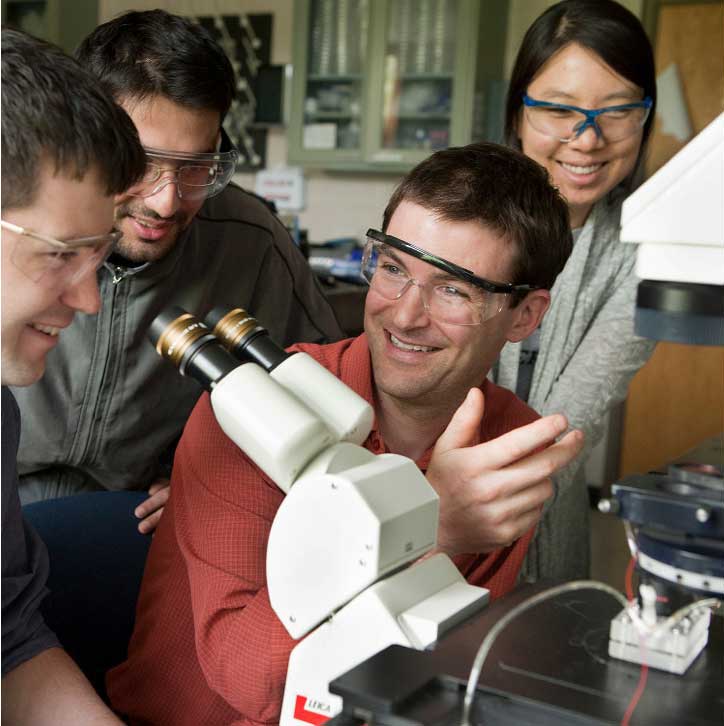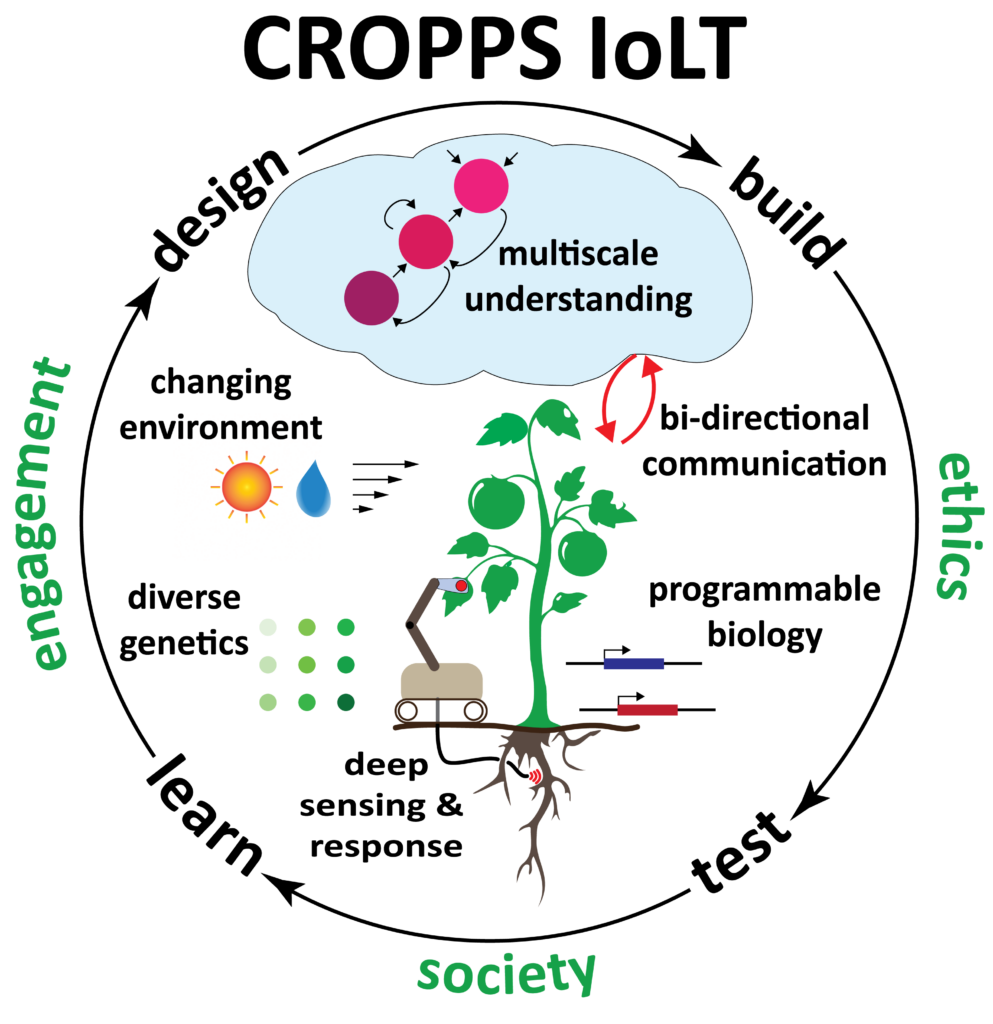At CROPPS, we believe in the transformative power of collaboration—connecting plants, people, and technology for a better future. Imagine a world where plants share real-time insights about their health, growth, and environment, reshaping farming to cut water waste, boost nutrient efficiency, and build a stronger connection between agriculture and the natural world.
This vision isn’t just imagined—it’s within reach.
At CROPPS, we’re driving the scientific discoveries and technological innovations that deepen the connection between humans and plants. Our work focuses on a few key crops—maize, cotton, tomatoes, and sweet potatoes— addressing their unique challenges and opportunities. By advancing biotechnology, robotics, computer science, data analytics and social sciences, we’re translating plant signals into actionable insights, enabling sustainable, productive, and resilient farming practices.













